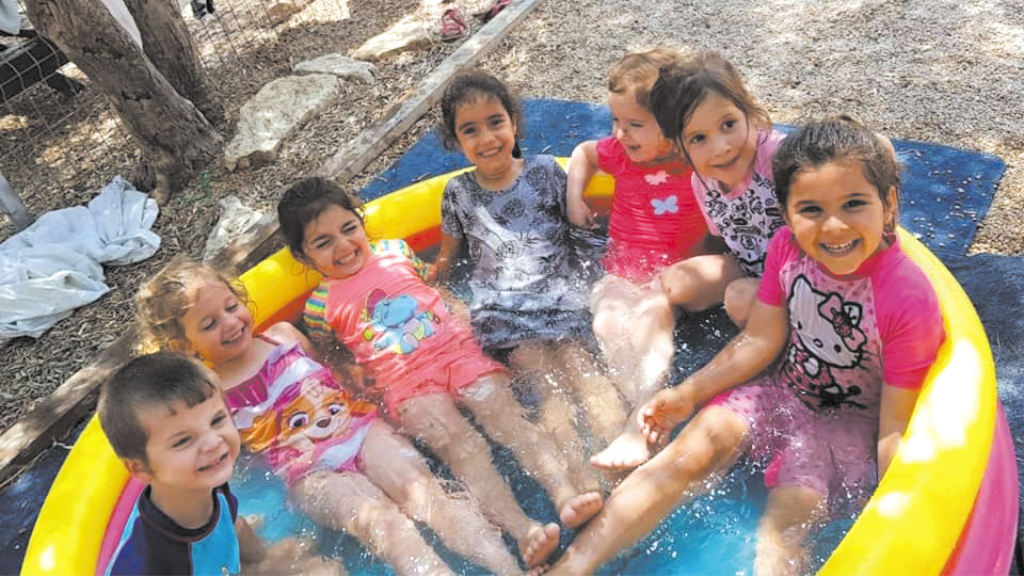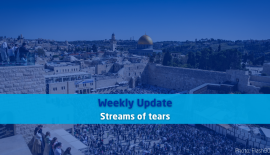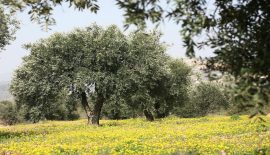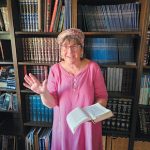Terrorism So Close to Home
On a beautiful Monday morning in January, terrorists stopped their vehicle in the middle of a main road, got out of the car and started shooting in every direction. There was a bus travelling in one direction and cars going in both directions. Many were injured. Three were murdered: Rachel Cohen, Aliza Reis and Elad Vinkelstein.
The road links my community, Karnei Shomron, with the next community to the east, Kedumim. The two communities are well connected to one another. The high school students from both communities study in the same school, and people from one community work in the other. Karnei Shomron is the larger community with more services so many from Kedumim come regularly to Karnei Shomron to shop, go out for dinner, or go to the pool. And we have friends across both communities.
Rachel Cohen and Aliza Reis, both women in their seventies, were both guidance counsellors from Kedumim. They were also best friends. Rachel had already retired but Aliza was finishing her last year of work. Aliza was the guidance counsellor at one of the elementary schools in Karnei Shomron and she was loved by parents, teachers and students alike, always there when needed. Rachel had once lived in Elon Moreh. But after her close friend and neighbour Rachel Gavish was murdered in her home together with her husband, father and son, the Gavish children moved to Kedumim to be with relatives. Rachel Cohen moved her family to Kedumim to be near the Gavish children and be a part of their lives. So terrorism and its tragic consequences were no stranger to Rachel.
When the news hit of a terrorist attack on the road near Kedumim, at first only the murder of the two women was announced. I heard the news and I was deeply worried. They mentioned the women as being in their 60s or 70s and that meant that any of my friends could have been the victims. We held our breath and worried for hours until the names of the victims were released.
My sister was a good friend of Aliza Reis. She was the head of school of psychology in Karnei Shomron until her recent retirement and worked closely with Aliza for decades. As soon as she heard about the attack, she phoned Aliza, knowing that she was still making her way to work in Karnei Shomron each morning. The phone rang and rang with no answer, my sister was worried.
Soon, we heard the news that there was a third victim—a young man in his thirties. I have five children in their thirties and early forties and while I knew that my children were safe, I kept wondering if this was a friend of any of theirs.
Then they announced the names and we discovered that the young man was Elad Vinkelstein who had grown up in Karnei Shomron. He had been a close childhood friend of my nephew. His brother had recently moved back to Karnei Shomron and had become friendly with my son. And his son was good friends with my grandson. That son, Naveh, was in the car when his father was shot in front of his eyes. He phoned his mother to tell her. Naveh is ten years old.
I moved to Karnei Shomron in 1987 and shortly after that, terrorists attacked a group of teenagers hiking in Samaria, murdering a 15-year-old girl. That attack signaled a change. Suddenly, we had to think twice before driving around the countryside, stopping to shop in local Arab markets, and hiking in the beautiful hills that surround us. Even as we became more cautious, the violence escalated. At the time, all of the main roads in Judea and Samaria drove through Arab towns and villages. And nearly every day, Arab terrorists, even children, would throw rocks or Molotov cocktails at our cars. People were injured. People were killed. It was a time when each and every resident of Judea and Samaria had to consciously commit to living here, knowing that we could be risking our lives daily. But we persevered. We were not going to let the terrorists drive us off our land.
Ever since those first years of terror, terrorism has had its ups and downs. Over the years, bypass roads were built to enable us to avoid entering Arab towns and villages. Actually, one of the last villages to include a main road through its centre was the village where the recent terrorist attack took place. Just days prior to the attack, the government had announced plans to complete the final stages of the road that would bypass that village.
Since 7 October 2023, attention has focused on the main battle fronts, initially in Gaza and more recently in Lebanon and Syria as well. But no one was talking about Judea and Samaria. For months, I have called Judea and Samaria the third front that no one is talking about. The IDF has been well aware of this front, of course, and has fought bravely and effectively in a far more aggressive manner than before. There have been air strikes and street battles against terrorist groups in Shechem, Jenin and TulKarem, the three cities in Samaria with a strong Hamas and Islamic Jihad presence. Israeli intelligence has been working overtime and has successfully prevented over 1,000 terrorist attacks in 2024 alone. As a result of their diligence, there was a 40% decrease in actual terrorist attacks over the past year.
‘They may continue to murder us but we will not let them kill our desire for life and our commitment to all that is good in this world.’
But the terrorists are still among us, funded and armed by Iran, and others. The IDF has tripled its presence along the Jordan Valley border with Jordan, to try and stop the ongoing smuggling of arms and ammunition coming through that border from Iran via Jordan to Judea and Samaria. It is an ongoing battle and one that we dare not stop.
With the spectre of the 7 October massacre always before us, we have placed added emphasis on civilian protection for communities in the event of an attack.Everyone—civilians, police and military—is on alert 24/7.
So how do we live? It is amazing what you can get used to. Ever since 1988, terrorist attacks have become a part of our lives. It isn’t right. It isn’t fair. But it’s a fact. Over the years, we have lost friends and neighbours to terrorist attacks. One of my neighbours is in a wheelchair, paralysed from the waist down from an attack over 20 years ago. Today, he volunteers his time to visit wounded soldiers and victims of terrorist attacks, to give them hope and courage. Life goes on.
When one of our loved ones is injured or killed, we are heartbroken. We mourn them. We weep and then we find a way to move on. When someone in the community suffers such a loss, everyone rallies to help—some bereaved families are receiving home-baked goodies from neighbours even a year after the tragedy. It is our way of saying we are with you. It is also our way of remembering that it could have happened to any one of us.
One day, they will give up. They will realise that their hatred has consumed any chance for them to have a normal life. But we will never give up. And we will never lose our hold on life. They may continue to murder us but we will not let them kill our desire for life and our commitment to all that is good in this world. We will continue to have children and grandchildren—the very essence of life. And we will pray to God for protection and strength.






